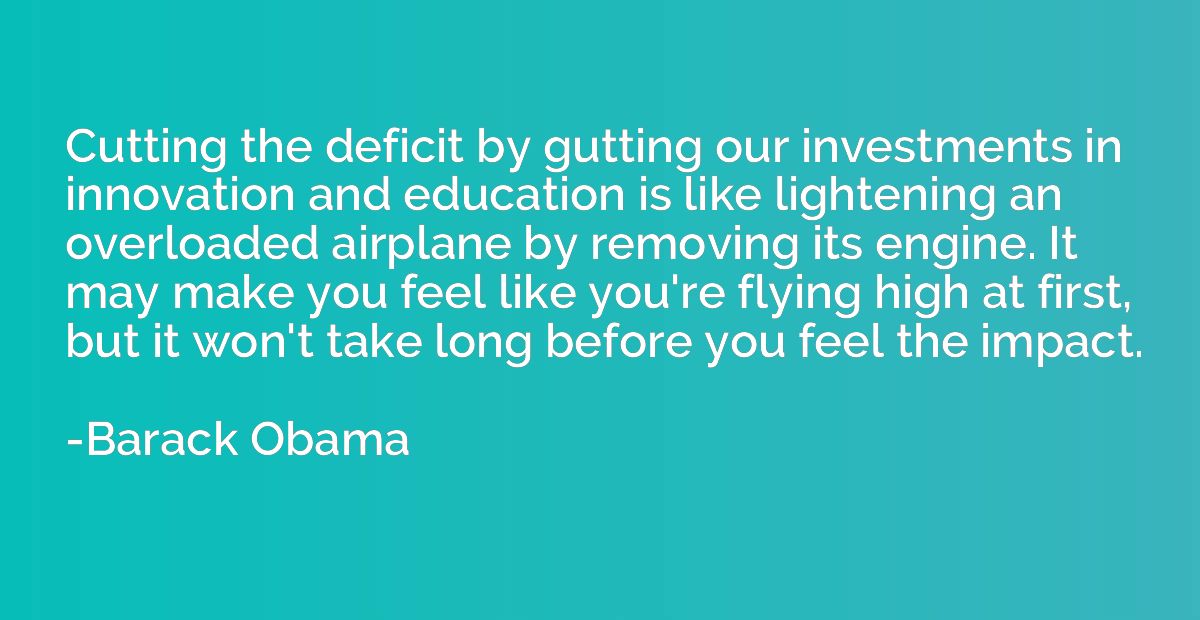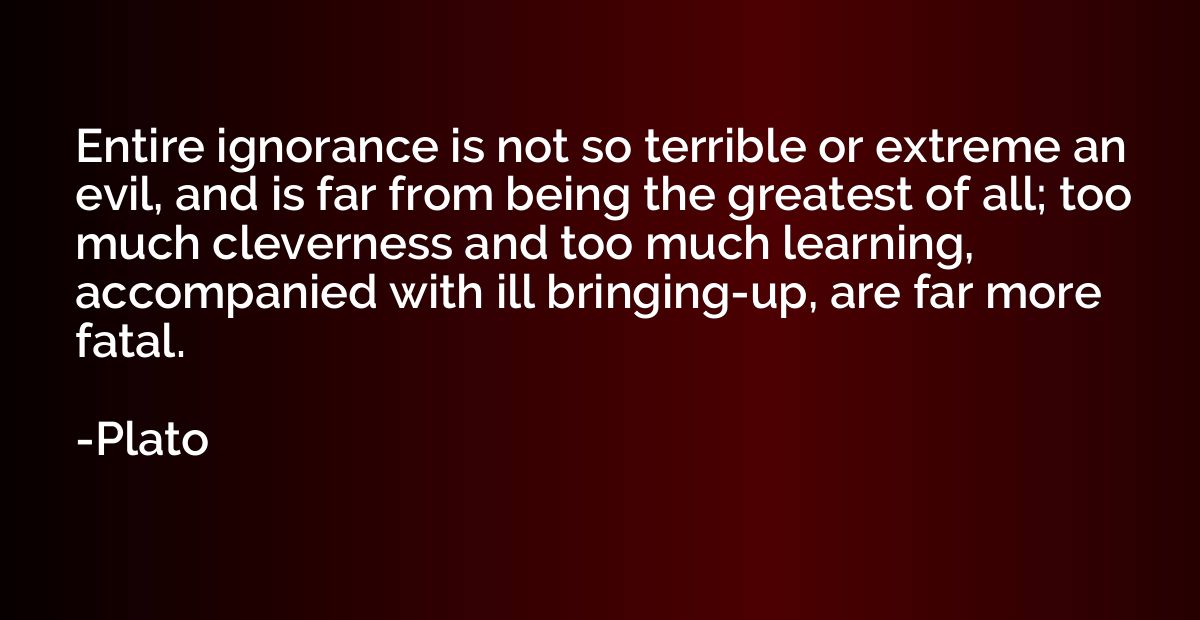Quote by Barack Obama
Cutting the deficit by gutting our investments in innovation and education is like lightening an overloaded airplane by removing its engine. It may make you feel like you're flying high at first, but it won't take long before you feel the impact.

Summary
This quote highlights the detrimental effects of prioritizing deficit reduction at the expense of investments in innovation and education. It suggests that although cutting spending may produce an initial sense of progress, it is ultimately a short-sighted decision that will have negative consequences in the long run. The analogy of removing an airplane engine emphasizes the importance of these investments as crucial elements for sustained growth and progress.
Topics
Education
By Barack Obama














